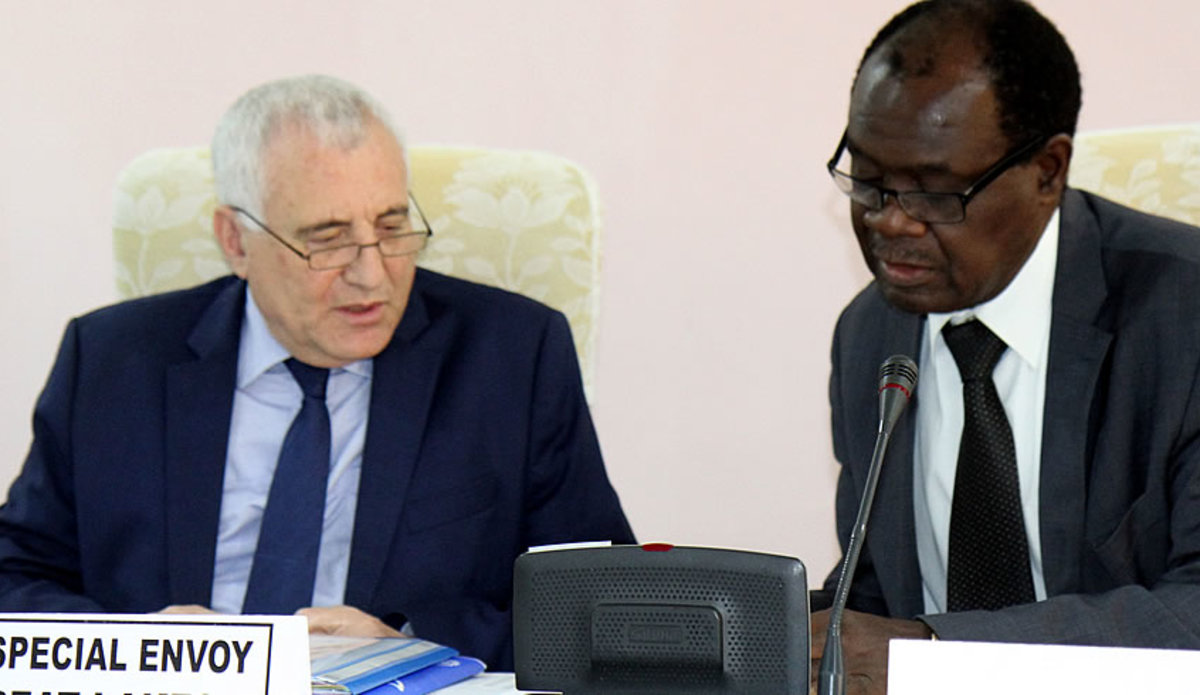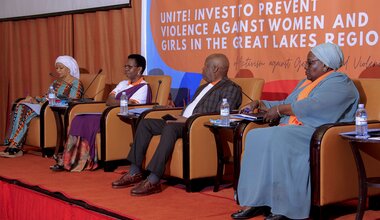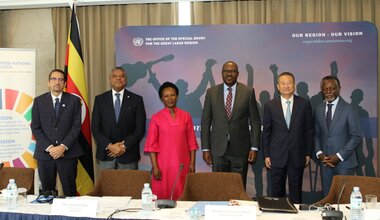13 May
2016
Lusaka, 13 May 2016 - The Republic of Zambia, in its capacity as signatory to the Peace, Security and Cooperation Framework (PSCF) agreement for the Democratic Republic of Congo (DRC) and the region is hosting today the 13th meeting of the Technical Support Committee. The Technical Support Committee is an advisory mechanism comprising senior government officials from the 13 signatory countries of the PSCF, including the DRC, Angola, Burundi, the Central African Republic, the Republic of Congo, Kenya, Rwanda, South Africa, South Sudan, Sudan, Tanzania, Uganda and Zambia.
The meeting follows a recommendation of the Heads of State and Government of the region, and the “Guarantors” of the PSCF, including the United Nations, the African Union (AU) Commission, the International Conference on the Great Lakes Region (ICGLR) and the Southern Africa Development Community (SADC) to promote inclusive participation by member states in the implementation process of the PSCF agreement. The peace agreement, also referred to as “Framework of Hope” includes a set of commitments for the DRC, the region and the international community.
In his opening remarks, the United Nations Special Envoy for the Great Lakes region, Said Djinnit, said a lot still remained to be done despite some progress in the neutralization of negative forces in the region. “We, as co-chairs and guarantors of the PSCF, believe that the region will not be at peace and able to focus on socio-economic progress if the plague of negative forces, and other root causes of conflicts in the region remain unaddressed,” Mr. Djinnit said. “On this point, we should acknowledge that achievements in the neutralization of armed groups, and FDLR in particular, remain minimal,” he added.
The Technical Support Committee meeting is expected to make recommendations to advance the implementation of the core objectives of the Framework which include: the neutralization of armed groups in eastern Democratic Republic of Congo; tackling the illegal exploitation of natural resources; addressing impunity and promoting judicial cooperation; finding durable solutions for refugees and IDPs; supporting Women and Youth empowerment; and promoting regional integration, economic development and governance.
 UN
UN





